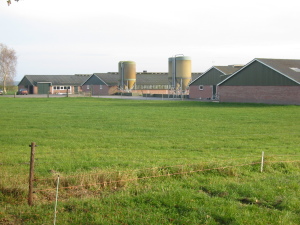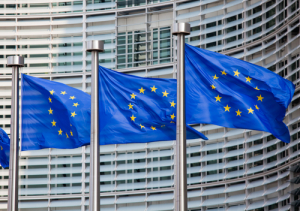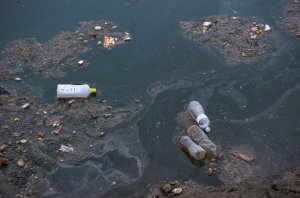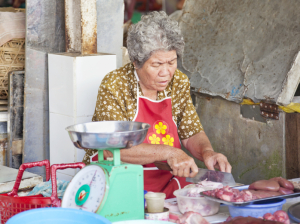Worldlog Semana 48 – 2014
Terribles noticias esta semana. En dos empresas avícolas se han sacrificado 200.000 aves de corral debido a un brote de gripe aviar. El actual sistema intensivo es una bomba de relojería para el brote de enfermedades animales contagiosas. En 2003 se sacrificaron 40 millones de aves de corral a causa de la gripe aviar. Se trata de un problema recurrente cuando se obliga a los animales a vivir amontonados en espacios pequeños: es inevitable que se produzcan brotes de enfermedades que se extienden rápidamente. Es de locos pensar que en solo tres pequeños municipios holandeses (Barneveld, Veenendaal y Ede) hay reunidas diez millones de aves de corral. En tales circunstancias, la amenaza de un brote de enfermedades virales contagiosas es continua. Y a pesar de las serias preocupaciones manifestadas por los habitantes del entorno, se siguen construyendo naves de cría intensiva, que no son más que auténticas fábricas de virus.
Según un estudio reciente, las aves migratorias, a las que se suele señalar como culpables de propagar el virus de la gripe aviar, no traen el virus a Holanda, sino que se contagian aquí.
En resumen, materia más que suficiente para un debate parlamentario. Lamentablemente, mi solicitud al respecto se vio rechazada. Pero ya he planteado preguntas parlamentarias solicitando aclaraciones sobre el bienestar de los animales durante la prohibición de transporte, la seguridad de los habitantes de los lugares afectados y el uso de un CO2 sumamente cruel con los animales para sacrificar a las aves. La asfixia con CO2 implica muchas veces una muerte lenta y dolorosa de los animales.
Esta semana he presentado dos mociones sobre el tratado de libre comercio entre la UE y los Estados Unidos (Asociación Transatlántica de Comercio e Inversión). Con ellas, solicitamos a nuestro Gobierno que pida ante la UE la finalización de las negociaciones para este tratado y que, en su lugar, se inicien conversaciones con los EE. UU. para una alternativa más sostenible. Entretanto, más de 230 organizaciones civiles de 21 Estados miembros han puesto en marcha una iniciativa ciudadana con ya más de 913.000 firmas: https://stop-ttip.org/. La Comisión Europea comunicó el mes pasado a los promotores que no reconocerán oficialmente la iniciativa. Una vergüenza. Por eso, he pedido al Gobierno holandés que abogue por el reconocimiento de esta iniciativa en Bruselas. El tratado de libre comercio con EE. UU. tiene graves consecuencias para el medio ambiente, el bienestar animal, los países en vías de desarrollo y los emprendedores europeos. Esperemos, por tanto, que podamos detener este tipo de prácticas.
¡Gran noticia! Boyan Slat, un joven holandés de Delft de solo 20 años ha ganado un premio medioambiental de las Naciones Unidas por su invento para limpiar de plástico los océanos. A través de una campaña de financiación colectiva, ya se ha recaudado suficiente dinero para probar prototipos cada vez más grandes de su instalación. Boyan es el ganador más joven de la historia de este premio. ¡Enhorabuena!
En el debate sobre el presupuesto de comercio exterior y ayuda al desarrollo, he señalado la relación entre problemas de desarrollo y cambio climático. El cambio climático causado por los países occidentales pone en peligro la provisión de alimentos en todo el mundo, siendo los países en vías de desarrollo los más afectados. Además, la subida del nivel del mar provocará en poco tiempo que cientos de miles de personas tengan que abandonar su lugar de origen, apareciendo así un nuevo tipo de refugiado: los refugiados climáticos. También he subrayado que la ayuda al desarrollo aportada desde Holanda debe implicar, ante todo, una nueva forma de producir y consumir. Tenemos que apostar fuerte por el comercio justo, la transparencia sobre el origen de las materias primas y la producción y consumo regionales.
Os dejo por último un interesante vídeo del gran economista Rifkin, en el que aboga por acabar con el alto consumo de carne y afirma que la crisis financiera no es nada en comparación con los problemas que están por venir. https://www.youtube.com/watch?v=m9wM-p8wTq4
¡Hasta la semana que viene!
Terrible news this week. Almost 200,000 chickens in total at two poultry holdings were gassed due to an outbreak of bird flu. The current large-scale system is like a ticking time-bomb for unstoppable outbreaks of animal diseases. In 2003, 40 million chickens were gassed due to the bird flu. Diseases are bound to arise when living beings are kept so close together in one area. It is absolutely ridiculous that three small Dutch municipalities ( Barneveld, Veenendaal and Ede) together accommodate ten million chickens. It is causing a continuous threat of a contagious virus outbreak. And despite the fact that people living in the neighbourhood are seriously worried, more mega stables or virus factories are being built.
Recent research showed that migratory birds, which often serve as scapegoats for bird flu, are actually exposed to the virus in the Netherlands instead of bringing it here.
All in all, food enough for a debate in the House of Representatives. My request for one was unfortunately rejected. In my parliamentary questions I asked for clarification on the guarantee of the welfare of animals during the transport ban, the safety of people living in the neighbourhood and the application of highly animal unfriendly CO2 to kill chickens. Gasification with CO2 often means a slow painful death for the chickens.
This week, I submitted two motions regarding the Free Trade Agreement between the EU and the United States (TTIP). The motions request our government to call on the EU to end the negotiations on this agreement and to discuss a more sustainable alternative with the US. Meanwhile, more than 230 community organisations and citizens’ movements from 21 Member States have started a citizens’ initiative and have already collected more than 913,000 signatures. https://stop-ttip.org/ Last month, the European Commission informed the initiators that it will not acknowledge the citizens’ initiative. Shame on the EU. I called on the Dutch government to argue in favour for the initiative in Brussels. The Free Trade Agreement has very harmful effects on the environment, animal welfare, developing countries and European entrepreneurs. Hopefully we can stop these types of practices!
Great news! The 20-year-old Dutch Boyan Slat from Delft has won the UN Environmental Prize with his invention to remove plastic soup. Enough money has meanwhile been raised by a crowd fund campaign to test increasing prototypes of his installation system. Boyan is the youngest winner of this prize ever. Congratulations!
During the debate on the Foreign Trade and Development Cooperation budget, I pointed out the relation between development issues and climate change. The global food supply is threatened by the climate change that is caused by the West, which will hit the developing countries hardest. On top of that, the rising sea level will cause hundreds of thousands of climate refugees within no time at all. I further clarified that development aid from the Netherlands should in particular mean that we will start to produce and consume differently. We have to focus on fair trade, transparency with respect to the origin of the raw materials and regionalisation!
Here is a very interesting video of chief economist Rifkin. He advocates an end to the high meat consumption and says that the credit crisis is nothing compared to the problems that are still to come. https://www.youtube.com/watch?v=m9wM-p8wTq4
Until next week!



